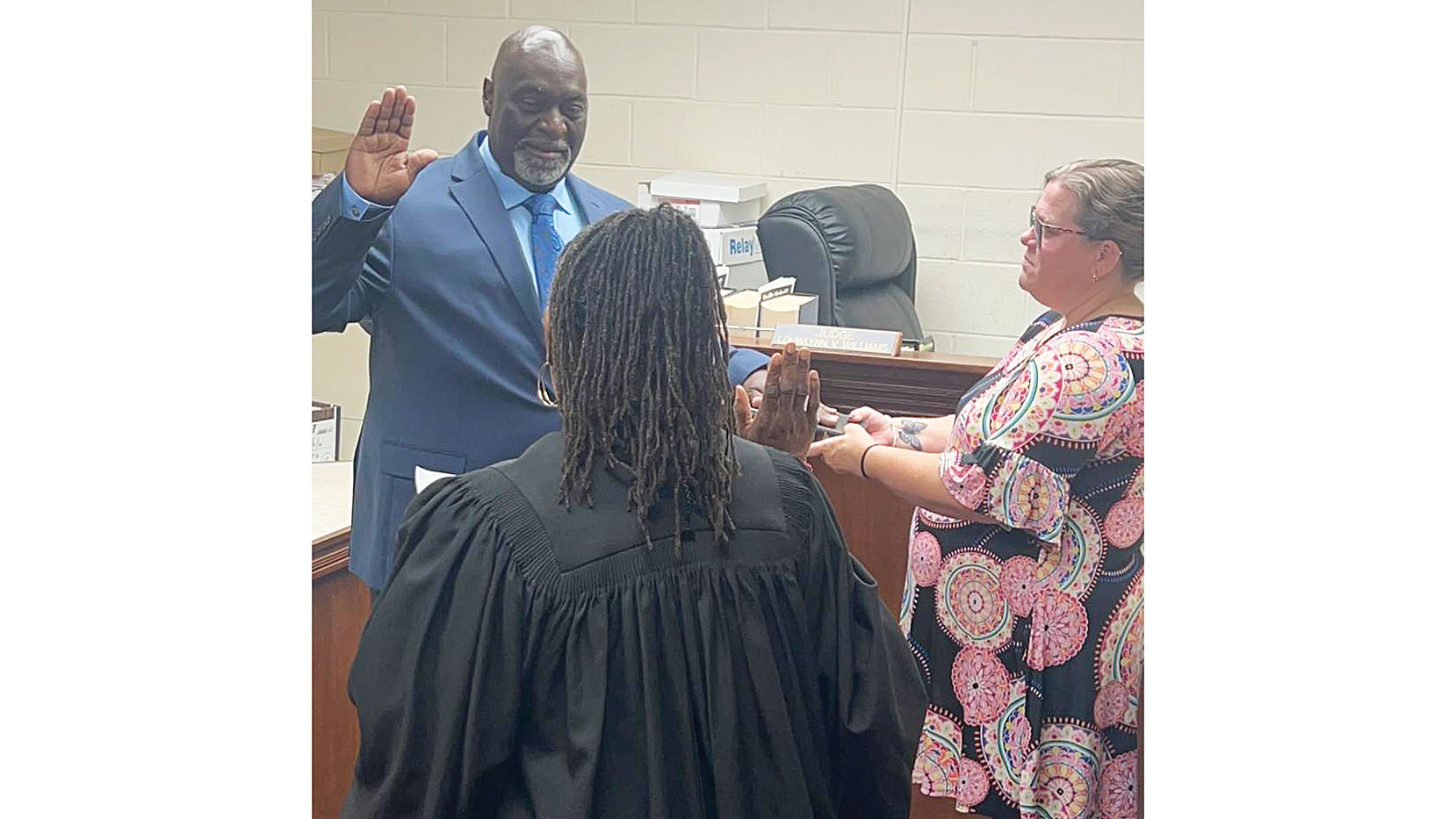Woman’s leap of faith brings dyslexia therapy to local kids
Published 4:27 pm Wednesday, August 14, 2013

RHONDA DUNAWAY / THE DAILY LEADER / Four-year-old Isabella Spring works on learnng her alphabet with the Orton Gillingham Method, taught by therapist Millie Porter at the Reading Nook.
Millicent Porter is a therapist with a cheerful office in historic downtown Brookhaven that provides a much needed service to public and private schools – dyslexia screening and therapy.
In June she made a leap of faith and opened The Reading Nook at 112 West Cherokee St. She has provided dyslexia therapy to about 22 students through the summer and said her fall sessions are filling up rapidly.
“All of my students have come through private referrals so far,” Porter said.
Porter said that although public schools provide individual education plans to students with other disabilities – learning and otherwise – they do not provide any special curriculum for children with dyslexia.
“It’s simply on the parents or the student to adjust or adapt to standard classroom curriculum,” Porter said, “or to find someone like me who provides dyslexia therapy.”
Mississippi House bill 1031 – Dyslexia Therapy Scholarship, which was approved in May 2012, requires schools to recognize dyslexia as a learning disability. It says that specific guidelines, curriculum and therapeutic learning must be provided for students diagnosed with dyslexia. An individual education plan for getting the right intervention and education is now required.
“But, it is not enforced at this time,” Porter said.
She said that although there is the new mandate for providing dyslexic students with a specialized curriculum, it will take the state of Mississippi a while to catch up.
The bill requires that children be screened for dyslexia between kindergarten and first grade, and it provides for additional training for school diagnosticians, but Porter said if a child is testing positive for dyslexia parents, are told that it will be their responsibility to follow up with further testing for their child.
Porter worked as a speech therapist in the public schools for five years before she decided to specialize in dyslexia, saying, “there is a real need for this type of therapy in our schools.”
She has a bachelor’s degree in communicative disorders and is getting her master’s degree in speech-language pathology. She recently graduated form Mississippi College with a master’s degree in Dyslexia Therapy. She teaches most students at her downtown location but said she will be having classes at Brookhaven Academy this fall, and said she is open to spending time at other schools in the area.
She pointed out that there is only one school in Mississippi dedicated to teaching dyslexic students, The 3-D School & Evaluation Center in Petal.
“My dream is to have a 3-D school in Brookhaven one day soon,” she said.
Porter uses the Orton-Gillingham approach, which is the educational therapy the Mississippi legislation requires for public and private schools with a dyslexic curriculum.
“It’s an alphabetic phonics approach,” she said. “At each session, we will go over reading, spelling, language, vocabulary, writing, phonological (sound) awareness and listening comprehension.”
Porter said that all of her dyslexic students are very bright, but that their intellect is usually not evidenced in their reading comprehension and writing skills.
“It’s when a dyslexic child is creating,” Porter said, “usually doing some type of work with their hands, that you see their true intelligence and abilities.”
Porter said dyslexia has the following characteristics:
• Neurobiological in origin, it is a disorder that makes it difficult to connect the sound components of speech.
• Auditory comprehension is far better than reading comprehension.
• Reversal of letters or sequences in writing
• Difficulty in learning the alphabet and in learning to read
• Cramped or illegible handwriting
• Repeated erratic spelling errors
• Secondary consequences may include problems in reading comprehension and reduced reading experiences – the student doesn’t like reading – which impedes vocabulary and general knowledge.
Porter also does phychometric testing for Attention Deficit Disorder and Attention Deficit and Hyperactivity Disorder.





